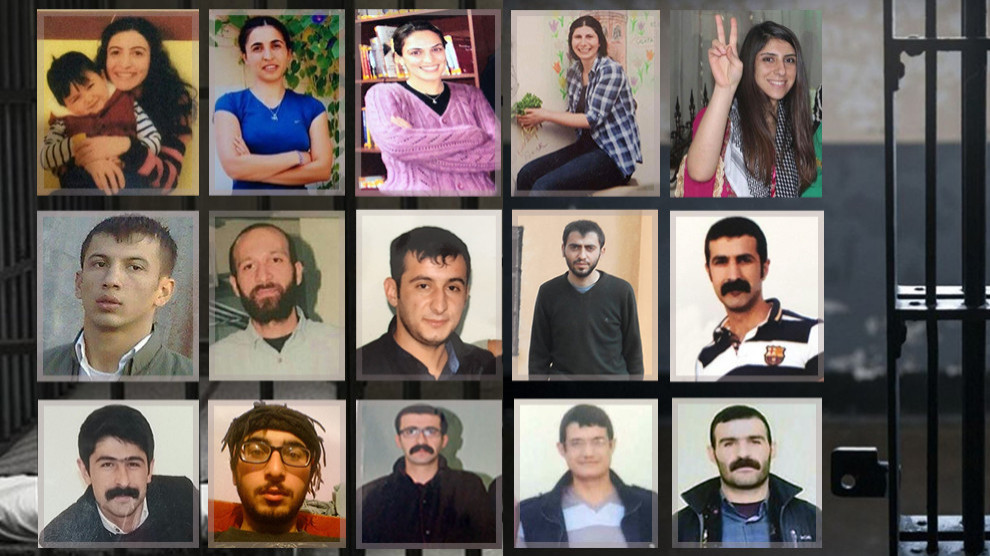Prisoner on death fast: We will succeed if we stand together
Doğan first joined the indefinite hunger strike launched in prisons on 1 March and on 30 April she turned the hunger strike into death fast.
Doğan first joined the indefinite hunger strike launched in prisons on 1 March and on 30 April she turned the hunger strike into death fast.

Asli Doğan is one of the 15 prisoners on death fast since 30 April. She is in Gebze Women Closed prison. P
In a letter dated 5 May she said that in this important phase of the resistance everyone should do whatever is in their hands.
Asli Doğan has been in jail for 13 years. Now she is on death fast in Gebze Women Closed Prison. In her message she pointed out that the genocide would continue unless isolation is broken. “If we organised each other surely we will succeed” she said.
Doğan was born in 1979 in the town of Karakoçan in Elazığ. She joined the Kurdish Freedom Movement in 2002. She was arrested at the beginning of 2007.
She decided to join the death fast to protest the isolation imposed on Kurdish People's Leader Abdullah Öcalan, and deepened in 2006.
Doğan first joined the indefinite hunger strike launched in prisons on 1 March and on 30 April she turned the hunger strike into death fast.
If we don’t end isolation the genocide will continue
Stressing that it is an honor for her “to be in the middle of the resistance with the excitement of the spirit of success and the spirit of resistance”, and that “the AKP-MHP fascism insisted on the genocide” Doğan added: “The most basic and original purpose of the genocide is make sure the Kurdish People's Leader is forgotten. It is to leave us without identity, without leadership, without history, without thoughts, without economy. Imrali torture system is the center of this genocide. All special and psychological warfare forms are first tried in Imrali and then on people. That's the genocide. Unless the isolation of İmralı is broken, the crime against the Kurdish people will continue.”
It is not enough to say the resistance is right
Doğan added in her letter that in this important phase of the resistance it was not enough to say the resistance is right. “We no longer have to be the victim of the genocide nor a crime in partner. The knife is in the bone. These are the days when we will determine the fate of our own history. For this, everyone should be organized wherever they are and should do whatever is in their hands.”
Doğan ended her letter by saying: “We have a history of resistance; we have a tremendous level of understanding, understanding and experience created by our 40-year struggle. As long as we believe that we will break the isolation. We trust ourselves and do what we can. If we coordinate each other surely we will succeed.”